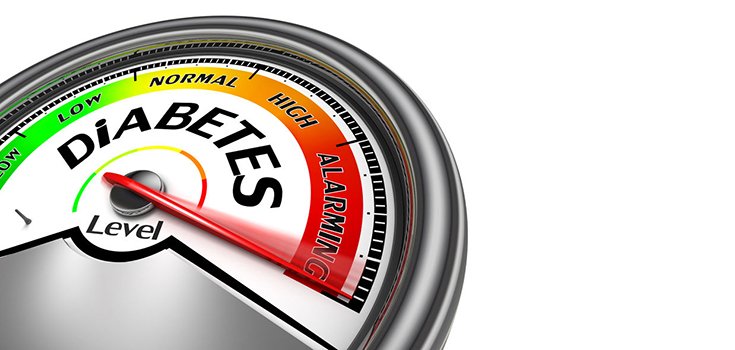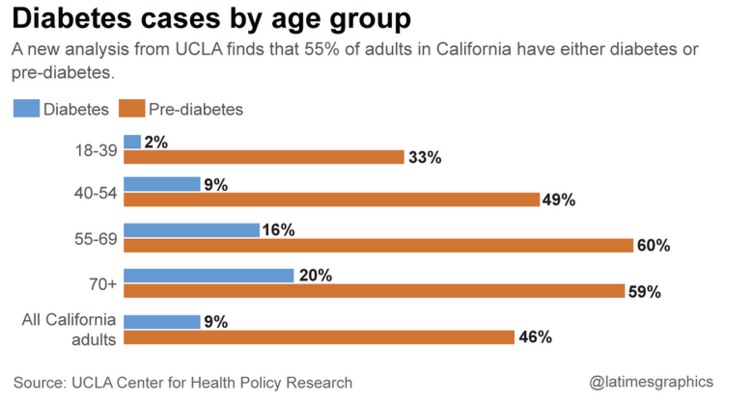Diabetes and Prediabetes Rates in California: “A Storm is Coming”

It’s not all rippling muscles and green smoothies in California. A new analysis by University of California Los Angeles (UCLA) researchers shows a shocking number of Californians either have diabetes or are on the verge of developing it.

To be specific 55% of California adults have either diabetes or prediabetes, a condition in which a person’s blood glucose levels are higher than normal, but not high enough to be considered diabetic.
The analysis used a predictive model based on national blood testing results and survey data of 40,000 California residents.
Dr. Harold Goldstein, the report’s co-author and executive director of the California Center for Public Health Advocacy, told The Sacramento Bee:
“The numbers are so large that they stop you in your tracks… It’s hard to digest that the situation is as bad as it is.”
The team already knew 9% of adults in the state have diabetes, but the rate of prediabetes had previously been estimated to be about 33% rather than the 46% the researchers found.
Dr. Francine Kaufman, the former head of the American Diabetes Association who was not involved in the study, told the Los Angeles Times:
“Our genes and our environment are kind of on a collision course. It’s not stopping.”
The data suggests things in the Golden State are only going to get worse: 18- to 39-year-olds in the state are gaining on older residents in their risk for developing Type 2 diabetes. Said Goldstein:
“These are the young adults who grew up during the childhood obesity epidemic.”
He warned:
“This study is a barometer telling us that the storm is coming.”
Dr. Susan Babey, the study’s co-author and co-director of the chronic disease program at UCLA’s Center for Health Policy Research, said the number of prediabetic Californians go “hand in hand” with rising rates of obesity both in California and nationwide. Less physical activity, more time spent playing video games and watching TV, and the sugar-filled Western diet are making American kids sick.
Babey told The Sacramento Bee:
“It goes back to sedentary kids. We’re less active than we should be or used to be. Our diets are not as good as they should be. We don’t eat enough fruits and vegetables. We eat too much sugar.”2
Type 2 diabetes differs from Type 1 in that it can be avoided with proper diet and exercise, whereas as Type 1 may be genetic. Approximately 30% of people diagnosed with prediabetes will go on to develop Type 2 diabetes within 5 years if they don’t make drastic changes to their lifestyle. As many as 70% of prediabetics will go on to develop the disease in their lifetime.

Left untreated, Type 2 diabetes can lead to limb amputations, blindness, liver disease, kidney failure, heart attack, stroke, and other potentially life-altering and sometimes fatal conditions.
Rates of diabetes have increased more than 175% nationally since 1980, federal data shows. In California, Type 2 diabetes is the 7th-leading cause of death.
Some 2.5 million Californians have been diagnosed with diabetes, and more than 100 diabetic Californians have a leg, foot, or toe amputated every week because of the disease.
Source:
